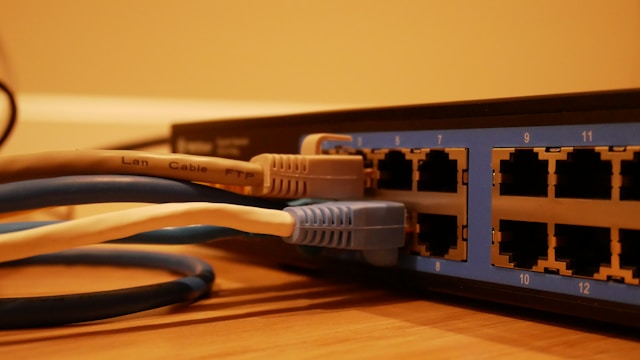There is no doubt that the internet has become one of the most transformative inventions in human history, completely reshaping how we communicate, work, learn, and interact with the world around us. A simple system for exchanging information between a few computers has expanded into an expansive network that affects nearly every aspect of our daily lives. This incredible evolution has reshaped our connections, broadened access to knowledge, and created new opportunities, making the internet an integral part of modern existence.

It’s fair to say that the internet has become deeply woven into the fabric of modern life. With over 5 billion users worldwide, it transcends borders, languages, and cultures – reaching people from busy urban centres to remote rural communities. The internet bridges distances like never before, allowing for seamless communication and collaboration across the globe.
But what makes it so universally embraced and powerful? Its power lies in the unprecedented access it provides to information, people, and an endless variety of services. From education, technology, medicine, and business to entertainment and social interaction, the internet has transformed the way we live, work, and connect. In doing so, it continues to open up opportunities and develop a growing sense of global community.
Access to Information
One of the primary reasons for the internet’s importance is its ability to simplify instant communication, as well as its unparalleled ability to provide access to information. Never before have people from all walks of life had such vast virtual libraries at their fingertips. Whether it’s scientific, academic, or medical research, historical archives, how-to guides, news, or entertainment, knowledge is accessible with a few keystrokes. When setting up your internet communication, it is vital to use professional internet installation specialists to get you going in the right direction – from the start.
Key Benefits of the Internet in Everyday Life
The internet is often called the “information superhighway,” and for good reason. It offers access to an incredible wealth of information on virtually any topic imaginable. From news articles and research papers to educational videos and blogs, the internet empowers individuals to learn and stay informed, breaking down traditional barriers to knowledge. Need to fix a leaky tap? Looking for a recipe? Want to understand a complex topic in seconds? The internet is the ultimate information hub. From academic research to simple how-to videos, it empowers us to learn and make informed decisions instantly.
- Real-Time Information
From breaking news and weather updates to emergency alerts, the internet delivers information instantly. This constant flow of real-time data helps people stay informed, make timely decisions, and stay safe, whether it’s avoiding a traffic snarl-up or accident or being advised of road conditions and delays. - Global Reach
The internet allows for instant communication with people across the globe, breaking down geographical barriers. This affects commerce, learning, medicine, and technical matters, amongst others, as well as social media. - Learning and Education:
Online courses, educational resources, and interactive learning platforms make education more accessible and affordable to many who were previously disadvantaged due to financial, distance or availability constraints. In addition, the internet allows access to tutors and mentors globally, bringing education into every home possible. - Self-Education
The internet has revolutionised how we learn. With access to online courses, video tutorials, webinars, and discussion forums, anyone can develop new skills, explore new subjects, or even learn a new language. There has been a rise in TEFL (Teaching English as a Foreign Language) courses and applications. This empowers people of all ages to become lifelong learners.
This includes :
– Distance Learning: Students can attend classes and earn degrees online, regardless of geographic location or physical limitations.
– Open Educational Resources: Free access to textbooks, lectures, and study materials reduces costs and supports independent learners.
– Collaboration: Online platforms enable group projects, discussions, and peer-to-peer learning, fostering collaboration and critical thinking. - Empowering Disabled Learners
The internet plays a vital role in empowering disabled learners in South Africa by breaking down traditional barriers to education. It offers access to information, assistive technologies, and flexible online learning platforms that support inclusive learning experiences.
Resources are increasingly available in alternative formats, such as audio, Braille, and screen-reader-friendly content, making education more accessible to those with visual, hearing, or physical impairments. Perhaps most importantly, online learning enables students to participate from any location, removing mobility and infrastructure challenges that often hinder access to traditional classrooms. - Public Services
Many government services are now accessible online, making it easier for citizens to find information, pay bills, submit applications, and communicate with government departments without needing to visit an office in person. - Streaming Services
Platforms like Netflix, YouTube, and Spotify offer access to an enormous library of movies, TV shows, music, and other entertainment, thereby making it easy for people to enjoy quality content from home. This is especially valuable for those living alone or unable to afford the high costs involved in going out for entertainment. - Gaming
Online gaming platforms and communities allow people to connect and play with others globally, whether casually from home or at a professional, competitive level. These virtual spaces foster social interaction, teamwork, and even global friendships through a shared love of gaming. - Open Data and Transparency
Governments, organisations, and academic institutions now publish open data for public use. This fosters innovation, supports informed decision-making, and promotes transparency in everything from public policy to scientific research. - News and Current Events
The internet serves as a primary source of news and information, transforming the way users access updates on global events and current affairs. With just a few clicks, individuals can access a vast array of news outlets, blogs, and social media platforms that provide real-time coverage of everything from local happenings to international crises. This instantaneous access not only enables people to stay informed but also allows them to engage with diverse perspectives and opinions from around the world. that matter to them most. - Access to Healthcare
Telemedicine and health information portals allow people to consult with doctors, schedule appointments, and access medical advice online, particularly vital for those in remote areas or with limited mobility. The internet also supports mental health services, fitness programs, and access to medication and treatment information. Online resources empower individuals to research symptoms, treatments, and wellness practices, promoting self-care and prevention. People can search for general and generic advice on health issues before going to see a medical specialist, although this sort of information must be read with caution. It is just a guideline, not a diagnosis. In addition, digital records streamline communication between healthcare providers, reducing errors and improving coordination of care. - Remote Work and Flexibility
Particularly since the COVID-19 pandemic, the internet has facilitated remote work and online learning, making it possible for people to work from home or attend school from anywhere. The internet has enabled telecommuting and the formation of distributed teams, revolutionising the modern workplace. Cloud-based tools, video conferencing, and real-time collaboration platforms enable people to work from anywhere. This development provides invaluable flexibility for employees, allowing them to work from virtually anywhere and better achieve a work-life balance. For employers, the ability to hire remotely expands the talent pool significantly, enabling them to access skilled professionals regardless of geographical constraints. As a result, organisations can attract and utilise diverse talent, fostering innovation and a wide range of perspectives. Workers benefit from increased job opportunities, often gaining access to roles that may not have been available in their localities. This shift towards remote work not only enhances productivity but also allows companies to reduce overhead costs associated with physical office spaces. The internet enables remote work and freelance opportunities, providing flexibility and access to jobs that were previously limited by location. - Online Banking and Financial Services
Managing finances has never been easier. Online banking, EFTs (Electronic Funds Transfers), digital wallets, and financial apps let users pay bills, transfer money, invest, and track expenses quickly and securely, all from a smartphone or computer. - E-Commerce and Convenience
The rise of online shopping has transformed the retail experience. Consumers can browse, compare prices, and purchase almost anything without leaving their homes. Businesses of all sizes can sell products and services online, tapping into new markets and customers around the globe. - Social Connection and Support Networks
Social media, messaging apps, and online communities enable people to stay connected with friends, family, and like-minded individuals globally. Social media platforms offer a space for sharing content, connecting with others, and participating in online communities. Platforms like Facebook, Instagram, and Twitter enable users to connect with friends, family, and communities, fostering social interaction on a global scale. - Collaboration
The internet enables remote work, real-time collaboration, and the seamless sharing of ideas, making it far more cost- and time-efficient for individuals and organisations to work together and breaking down the barriers imposed by physical location. - Creativity and Self-Expression
The internet empowers creators such as artists, writers, musicians, and designers to share their work with global audiences. Platforms like YouTube, blogs, podcasts, and social media allow anyone to publish, perform, or build a personal brand, often turning passions into lucrative and successful careers. - Entertainment
The internet has become a rich source of entertainment and a platform for creativity.
– Streaming Media: Movies, music, and television shows are available on demand, catering to many diverse tastes and preferences.
– Gaming: Online gaming connects players worldwide, fostering competition, teamwork, and social interaction.
– User-Generated Content: Platforms like YouTube, podcasts, and blogs empower anyone to create and share content, opening media production to many users.
Privacy and Challenges
While the benefits of the internet are vast, it is important to acknowledge the challenges it presents.
- Privacy and Security. The sharing of personal data online creates risks, including identity theft and privacy breaches. Strong cybersecurity measures and privacy policies are essential.
- Digital Divide. Not everyone has equal access to the internet, leading to disparities in education, economic opportunity, and social participation. Efforts to expand affordable and reliable internet access are ongoing.
- Misinformation. The rapid spread of information can also spread falsehoods, rumours and misinformation. Critical thinking and digital literacy are necessary for navigating online spaces.
- Addiction and Mental Health. Excessive internet use can lead to addiction, isolation, and negative impacts on mental well-being. Moderation and healthy habits are important.
Moving Forward
The evolution of the internet is ongoing and streamlined. New innovations are constantly being developed, some of which are extremely useful, such as:
- Artificial Intelligence and Machine Learning. AI-driven tools and algorithms are powering smarter search engines, personalised recommendations, and intelligent virtual assistants, making online experiences more intuitive and efficient.
- Internet of Things (IoT). IoT connects everyday objects such as appliances, vehicles, and wearable devices to the internet, enabling automation, remote monitoring, and data-driven insights that improve quality of life and streamline processes.
- 5G and Beyond. Next-generation wireless networks promise faster, more reliable connections, opening the door to advanced applications in virtual reality, telemedicine, and smart cities.
Final Thoughts
The internet’s impact on our lives is profound, widespread, and undeniable. It has transformed how we communicate, learn, shop, work, and entertain ourselves. The internet offers immense benefits in access to information, communication, economic growth, education, healthcare, and entertainment. At its core, the internet’s greatest strength lies in its ability to connect people, ideas, and resources across the globe.
As our dependence on this powerful tool grows, it becomes increasingly important to approach it with awareness and responsibility. Addressing challenges such as digital inequality, online safety, and misinformation is essential to ensuring the internet remains a force for positive change by empowering individuals and communities rather than dividing or harming them.
As we progress further into the digital age, the internet’s role will only grow, offering new ways to solve problems, bridge divides, and enrich our human experience. The key lies in using it wisely and consciously to remain informed, empowered, and connected in meaningful ways.

